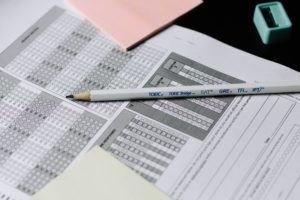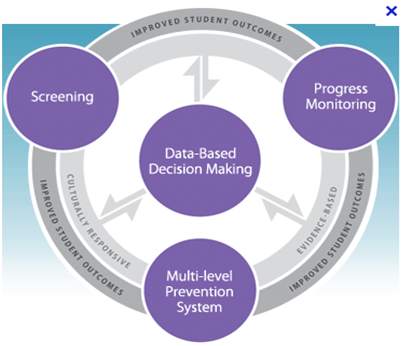» Click to View CFCI’s Yearly Assessment Plan
Universal Screening
 Universal Screening for both reading and math is administered by school personnel three times a year (fall, winter, spring) to determine which students may be at risk for poor learning outcomes, as well as which students that may be exceeding grade level standards.
Universal Screening for both reading and math is administered by school personnel three times a year (fall, winter, spring) to determine which students may be at risk for poor learning outcomes, as well as which students that may be exceeding grade level standards.
Students whose scores on the screening fall below or above a certain cutoff point are identified as needing additional supports and will be consider for a Supplemental and/or Intensive intervention plan.
Universal screening assessments are typically brief, conducted with all students at a grade level, and followed by additional testing or short-term progress monitoring to corroborate students’ needs.
Progress Monitoring

Progress monitoring is a scientifically-based practice used to assess students’ academic performance and growth, to quantify a student’s rate of improvement or response to instruction, and to evaluate the effectiveness of instruction. Progress Monitoring can be implemented with individual students, small groups, or an entire class.
It is an important piece in the data-based decision making process to improve student outcomes. It is a “check-in” as to the success of a particular intervention that is put in place through an intervention plan.
The Teachers’ Roles:
- Monitor the progress of Supplemental support for student at least once a month and at least every two weeks for students at the Intensive level.
- Use this data to determine whether students still require intervention.
- Reassign students who have met benchmark goals.
- Regroup students who need continued instructional support.
- For students continuing to make insufficient progress, school-wide teams design an Intensive plan, or modify their current Intensive plan.
